Acute diarrhoea is a very common problem in children and a major health problem in many parts of the world. It is estimated that 1.8 million people around the world die every year due to diarrhoeal diseases, which mostly affect children under five in developing countries.
Diarrhoea can be defined as frequent, loose, or watery bowel movements that differ from a child’s normal pattern. Children with diarrhoea may lose their appetite, vomit, lose weight, or have a fever. Other symptoms include abdominal cramps or pain, nausea, blood in the stool, and bloating. Dehydration is likely if diarrhoea is severe or persists for a long time.
Possible causes
Causes of diarrhoea depend on whether the condition is acute (lasting for less than two weeks) or chronic (continues for more than two weeks). Acute diarrhoea constitutes most of the cases of diarrhoea in children.
Acute diarrhoea
Gastroenteritis: Gastroenteritis is the inflammation of the gut due to infection. It is usually caused by viruses, but also includes bacterial and parasite infections. The most common cause of gastroenteritis is rotavirus.
Food poisoning: Diarrhoea and vomiting that are caused by food or water contaminated by bacteria such as Campylobacter, Salmonella, and Escherichia coli.
Prolonged use of antibiotics, painkillers, or laxatives: Some medications can affect the balance of microbiota in the gut, allowing bad bacteria like Clostridium difficile to multiply, thus causing diarrhoea.
Food allergies: Certain food allergies can also cause diarrhoea.
Chronic diarrhoea
Lactose intolerance: Consumption of milk and dairy products can lead to diarrhoea in people with lactose intolerance, due to their inability to digest lactose.
Cow’s milk protein allergy: Diarrhoea can be due to an allergic reaction of a child’s immune system to protein in cow’s milk.
A weakened immune system: HIV infection, immunodeficiency disorders, and usage of drugs that suppress the immune system can cause diarrhoea.
Other digestive disorders: These include irritable bowel syndrome, inflammatory bowel diseases like Crohn’s disease and ulcerative colitis, as well as malabsorption disorders like coeliac disease and cystic fibrosis.
Warning!
One of the most worrying complications of diarrhoea in children is dehydration, as the human body needs a certain amount of fluid to function normally. Moderate or severe diarrhoea can cause significant fluid loss. Severe dehydration is dangerous and can cause infection, seizures, kidney problems, and even death if not treated quickly. Infants and young children can become dehydrated in less than 24 hours if no treatment is given. Call your doctor if your child has:
- Dizziness and light-headedness
- Dry mouth, tongue and lips
- Dark yellow urine, or very little or no urine
- Few or no tears when crying
- Sunken eyes
- Lethargy, drowsiness, or irritability
The signs listed below are also a cause for concern; consult your doctor immediately:
- High fever
- Blood or mucus in stool
- Pain in the abdomen
- Weight loss, anaemia
- Fast, shallow breathing
- Bleeding or rash on the skin
What to do?
Most acute diarrhoea cases resolve in a few days. To manage the symptoms and prevent diarrhoea from getting worse, consider these measures:
- Rehydrate. Drink plenty of water or clear fluid to rehydrate the body after losing water due to diarrhoea. Avoid fizzy beverages, caffeine and alcohol as they can make diarrhoea worse. Oral rehydration solution can also be used to replace the loss of fluid and electrolytes. It contains the right balance of water, sugar and salts. For infants, continue breastfeeding with breast milk as it remains the best option for them.
- Avoid certain foods. Dairy products, fatty foods, high-fibre foods, or highly-seasoned foods can make the condition worse. Consume soft foods or a liquid diet for the time being.
- Refer to your doctor. Anti-diarrhoealmedications like loperamide may be helpful for adults, but are not always safe for children. Check with your doctor before taking these medications or giving them to children. Certain cases that are due to specific causes, like coeliac disease, need to be managed appropriately, according to your doctor’s advice.
- Consume probiotics. Probiotics can help restore the healthy balance of the gut microbiota by boosting the good bacteria in the gut. Probiotics can be taken in capsule or liquid form and are also available in certain foods like yoghurt and kimchi. Some types of probiotics are more effective for certain conditions. For example, the yeast strain Saccharomyces boulardii is found to be more effective in treatment of acute diarrhoea and in reducing antibiotic-associated diarrhoea (since yeast probiotics are not affected by antibiotics).
Almost every child would have at least one case of acute diarrhoea by the age of three. It is a common ailment in children due to various causes. If handled and treated properly, it should resolve with no further complications. However, always refer to your child’s paediatrician if symptoms persist. Remember to practise the best hygiene to prevent infection and spreading it to others.

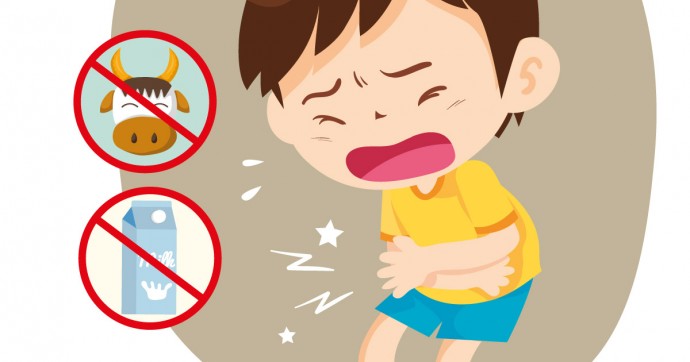
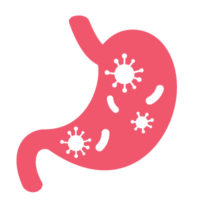
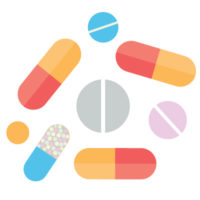
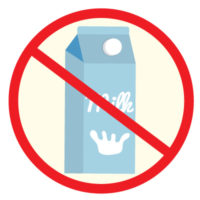
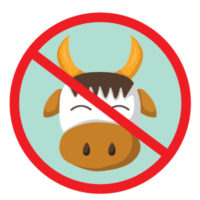





Comments